How to upgrade electrical systems in older homes safely
Electrical Upgrades Old Homes: How to Upgrade Electrical Systems Safely
Performing electrical upgrades in old homes is essential for enhancing safety, efficiency, and functionality. Older properties often have outdated wiring and electrical components that may not meet current safety standards or handle modern electrical demands. In this comprehensive guide, we’ll explore how to safely carry out electrical upgrades in old homes, ensuring your property meets today’s requirements while preserving its historic charm.
1. Why Electrical Upgrades in Old Homes Are Important
Upgrading electrical systems in older homes is crucial for several reasons. Outdated wiring poses significant safety risks, including electrical fires and shocks. Moreover, old electrical systems may not support modern appliances and technology. By performing electrical upgrades in old homes, you can:
Benefits of Electrical Upgrades in Old Homes:
- Enhance Safety: Reduce the risk of electrical fires and shocks.
- Increase Capacity: Support modern appliances and devices.
- Improve Energy Efficiency: Lower energy consumption and costs.
- Increase Property Value: Updated electrical systems add value to your home.
- Ensure Compliance: Meet current electrical codes and regulations.
SEO Keywords: electrical upgrades old homes, upgrade electrical systems, benefits of electrical upgrades
2. Signs Your Old Home Needs Electrical Upgrades
Recognizing when your old home needs electrical upgrades is essential for safety and functionality. Here are common indicators that it’s time for an electrical upgrade in your old home:
Warning Signs:
- Frequent Circuit Breaker Trips: Indicates overloaded circuits.
- Flickering or Dimming Lights: May signal faulty wiring.
- Discoloured or Warm Outlets: Suggests overheating components.
- Two-Pronged Outlets: Lack of grounding, common in old homes.
- Burning Smells or Sparks: Immediate attention required for safety.
- Aluminium or Knob-and-Tube Wiring: Outdated and potentially hazardous wiring methods.
Tip: If you notice any of these signs, consult a professional electrician promptly.
3. Safety Precautions and Legal Requirements for Electrical Upgrades in Old Homes
When undertaking electrical upgrades in old homes, it’s vital to adhere to safety protocols and comply with legal regulations. This ensures the upgrades are performed safely and meet current standards.
Safety Measures:
- Turn Off Power: Always shut off power at the main breaker before working.
- Use Proper Tools: Ensure all tools are insulated and suitable for electrical work.
- Wear Protective Gear: Use gloves and safety glasses to prevent injuries.
- Avoid Water: Keep electrical components away from moisture.
- Follow Instructions: Adhere to manufacturer guidelines and best practices.
Legal Considerations:
- Building Regulations: Comply with UK Building Regulations, particularly Part P, which covers electrical safety in dwellings.
- Permits and Inspections: Obtain necessary permits and arrange for inspections by certified professionals.
- Qualified Electricians: Use registered electricians who are members of a competent person scheme, such as NICEIC or NAPIT.
- Documentation: Keep records of all work done for future reference and compliance.
SEO Keywords: electrical safety old homes, legal requirements electrical upgrades, electrical upgrades old homes
4. Planning Your Electrical Upgrades in Old Homes
Careful planning is crucial when undertaking electrical upgrades in old homes. Start by assessing your current system and determining your needs.
Steps to Plan Your Electrical Upgrade:
- Assess Current System: Identify existing wiring types, panel capacity, and condition of outlets and switches.
- Determine Electrical Load: Calculate the total electrical load based on your appliances and devices.
- Create a Plan: Outline the scope of work, including rewiring, panel upgrades, and additional circuits.
- Set a Budget: Estimate costs for materials and labour.
- Consult Professionals: Engage with electricians for advice and quotes.
Tip: Prioritize safety and compliance over cost-saving measures.
5. Upgrading Electrical Panels in Old Homes
The electrical panel, or fuse box, is the heart of your home’s electrical system. Upgrading it is a key part of electrical upgrades in old homes, enhancing capacity and safety.
Why Upgrade the Panel in Old Homes:
- Increase Capacity: Modern panels handle higher electrical loads.
- Improve Safety: New panels have better safety features, like circuit breakers instead of fuses.
- Accommodate New Circuits: Essential for home additions or significant appliance installations.
Steps Involved in Electrical Panel Upgrade:
- Hire a Qualified Electrician: Panel upgrades require professional expertise.
- Choose the Right Panel: Select a panel with adequate amperage (usually 100-200 amps for modern homes).
- Install New Panel: Electrician will disconnect the old panel and connect the new one safely.
- Inspection and Testing: Ensure the installation meets all safety standards and functions correctly.
SEO Keywords: electrical panel upgrade old homes, fuse box replacement, electrical upgrades old homes
6. Rewiring Your Old Home
Rewiring is a significant aspect of electrical upgrades in old homes. It replaces outdated or damaged wiring with new, safer materials.
Benefits of Rewiring Old Homes:
- Eliminate Fire Hazards: Old wiring like knob-and-tube can be dangerous.
- Improve Performance: New wiring handles modern electrical demands efficiently.
- Enhance Safety: Reduces the risk of electrical shocks and short circuits.
Process of Rewiring an Old Home:
- Initial Assessment: Electrician evaluates the existing wiring.
- Create a Rewiring Plan: Determine the routing and types of wiring needed.
- Install New Wiring: Carefully replace old wires, minimizing damage to walls and ceilings.
- Testing and Certification: Ensure the new wiring meets all safety standards and is properly certified.
Tip: Consider rewiring during renovations to minimize disruption.
7. Installing New Outlets and Switches in Old Homes
Adding or replacing outlets and switches is a vital part of electrical upgrades in old homes. It enhances convenience and safety.
Considerations for Upgrading Outlets and Switches:
- Outlet Placement: Plan locations based on furniture layout and appliance needs.
- Type of Outlets: Install grounded three-prong outlets and consider USB outlets for charging devices.
- Child Safety: Use tamper-resistant outlets in homes with children.
- Switch Upgrades: Replace old switches with modern, durable ones, and consider dimmer switches for lighting control.
SEO Keywords: installing new outlets old homes, electrical upgrades old homes, updating switches in old homes
8. Upgrading Lighting Fixtures in Old Homes
Upgrading lighting fixtures is an effective way to improve energy efficiency and aesthetics in old homes. It’s an important aspect of electrical upgrades in old homes.
Benefits of Upgrading Lighting Fixtures:
- Energy Savings: Use LED fixtures for lower energy consumption.
- Improved Lighting: Enhance visibility and ambiance with better lighting design.
- Modern Style: Update the look of your home with contemporary fixtures.
Steps to Upgrade Lighting Fixtures:
- Select Fixtures: Choose designs that complement your home’s style.
- Check Compatibility: Ensure electrical capacity supports new fixtures.
- Professional Installation: Have an electrician install fixtures safely.
Tip: Consider smart lighting options for added convenience.
9. Adding Ground Fault Circuit Interrupters (GFCIs) in Old Homes
Installing GFCIs is a crucial safety enhancement in electrical upgrades for old homes. They protect against electrical shock, especially in wet areas.
Why Install GFCIs in Old Homes:
- Prevent Electric Shock: Quickly cut off power when a fault is detected.
- Required by Code: Current regulations mandate GFCIs in specific areas.
- Enhance Safety: Provide peace of mind, especially in homes with children.
Installation Process:
- Identify Locations: Kitchens, bathrooms, garages, and outdoor areas.
- Replace Existing Outlets: Swap standard outlets with GFCI outlets.
- Test Functionality: Use the test and reset buttons to ensure proper operation.
SEO Keywords: installing GFCIs old homes, electrical safety upgrades, electrical upgrades old homes
10. Energy Efficiency Considerations for Electrical Upgrades in Old Homes
Improving energy efficiency is a key benefit of electrical upgrades in old homes. This leads to cost savings and a reduced environmental impact.
Tips for Enhancing Energy Efficiency:
- Use Energy-Efficient Appliances: Replace old appliances with ENERGY STAR-rated models.
- Install Programmable Thermostats: Control heating and cooling more efficiently.
- Upgrade Insulation: Reduce energy loss by improving insulation in walls and attics.
- Implement Smart Home Technology: Automate and optimize energy usage.
- Consider Renewable Energy Sources: Explore solar panels or other renewable options.
Tip: Consult with an energy auditor for personalized recommendations.
11. Working with Professional Electricians for Old Home Upgrades
Collaborating with qualified electricians ensures that your electrical upgrades in old homes are performed safely and comply with regulations.
How to Choose an Electrician for Old Home Upgrades:
- Verify Credentials: Ensure they are registered with a competent person scheme like NICEIC or NAPIT.
- Check References: Look for reviews or ask for references from previous clients.
- Get Multiple Quotes: Compare prices and services from different electricians.
- Discuss Your Needs: Clearly communicate your requirements and expectations.
- Ensure Insurance Coverage: Confirm they have adequate liability insurance.
SEO Keywords: hiring electricians old homes, professional electrical upgrades, electrical upgrades old homes
12. Maintaining the Historic Character of Your Old Home During Electrical Upgrades
When performing electrical upgrades in old homes, it’s important to preserve their historic charm. Balancing modern functionality with traditional aesthetics enhances your home’s value.
Tips for Preserving Historic Character:
- Use Retro-Style Fixtures: Select switches and outlets that mimic vintage designs.
- Hide Wiring: Conceal new wiring within walls or use decorative conduits.
- Restore Original Features: Refurbish existing fixtures when possible.
- Consult Preservation Experts: Get advice on maintaining historical integrity.
Tip: Check if your home is listed or in a conservation area, as special rules may apply.
13. Cost Estimates and Budgeting for Electrical Upgrades in Old Homes
Understanding the costs involved helps in planning and budgeting for your electrical upgrades in old homes.
Typical Costs:
- Electrical Panel Upgrade: £500 – £1,500
- Whole-House Rewiring: £3,000 – £8,000 (depending on size and complexity)
- Installing New Outlets: £50 – £100 per outlet
- Lighting Fixture Upgrades: £100 – £500 per fixture (including installation)
- GFCI Installation: £50 – £150 per outlet
Budgeting Tips:
- Get Detailed Quotes: Ensure quotes include all materials and labour.
- Plan for Contingencies: Set aside 10-20% extra for unexpected expenses.
- Prioritize Upgrades: Focus on essential safety upgrades first.
- Consider Financing Options: Explore loans or grants for energy-efficient improvements.
SEO Keywords: electrical upgrade costs old homes, budgeting electrical upgrades, electrical upgrades old homes
14. Common Mistakes to Avoid in Electrical Upgrades of Old Homes
Avoiding common pitfalls ensures a successful and safe electrical upgrade in your old home.
Mistakes to Avoid:
- DIY Electrical Work: Attempting complex electrical tasks without proper training.
- Ignoring Building Codes: Failing to comply with regulations can lead to safety hazards and legal issues.
- Hiring Unqualified Contractors: Using unlicensed electricians risks poor workmanship and safety.
- Overloading Circuits: Adding too many devices without upgrading capacity.
- Neglecting Future Needs: Not planning for potential increases in electrical demand.
Tip: Always consult professionals and plan thoroughly to avoid these mistakes.
15. Conclusion
Performing electrical upgrades in old homes is a vital step towards enhancing safety, efficiency, and functionality. By carefully planning and working with qualified professionals, you can safely upgrade your home’s electrical systems. Not only will this protect your property and loved ones, but it will also increase your home’s value and comfort.
Remember, safety should always be your top priority. Therefore, don’t hesitate to seek professional assistance and ensure all work complies with legal requirements. With the right approach, you can enjoy the charm of your old home with the benefits of modern electrical systems.
16. About Wrestore
Commercial and Residential Property Maintenance Specialists
At Wrestore, we are dedicated to helping homeowners maintain and enhance their properties. Based in London and serving areas within the M25, we bring over 30 years of combined experience in the property and built environment sector.
Our Services Include:
- Electrical Upgrades in Old Homes: Professional electrical upgrades ensuring safety and compliance.
- General Maintenance: From routine upkeep to minor repairs, we keep your property in optimal condition.
- Plumbing: Expert installations and repairs by certified professionals.
- Decorating: Professional painting and decorating to transform your space.
- Refurbishment: Comprehensive property upgrades tailored to your needs.
- Handyman Services: Versatile assistance for various tasks around your property.
For more information on our services, visit our services page.
Why Choose Wrestore?
- Reliability: We deliver hassle-free, dependable service that you can trust.
- Expertise: Our skilled team ensures high-quality workmanship on every project.
- Accreditations: We are accredited by Alcumus SafeContractor, Alcumus SafePQQ, and Gas Safe Register, demonstrating our commitment to safety and professionalism.
- Customer Satisfaction: See our reviews on Trustpilot and discover why clients choose us for their property maintenance needs.
Check out our blog for more home maintenance tips, including our article on How to Maintain Your Roof for Longevity.
Contact Us Today
Phone: +44 (0)207 183 2771
Email: works@wrestore.co.uk
Address: 227 Waterloo Road, London, SE1 8XH
Visit our website to learn more about how we can assist you in maintaining and enhancing your property.
Upgrade your old home’s electrical systems safely and efficiently. Implement these tips on electrical upgrades in old homes and enjoy the perfect blend of historic charm and modern convenience.
Note: This blog post is intended for informational purposes and should not replace professional advice. Always consult qualified electricians for specific concerns related to your property’s electrical systems.
Looking for more home improvement advice? Read our article on Spot and Repair Water Damage Before It Spreads.
For more information on electrical safety, visit the Electrical Safety First website. You can also consult the UK Government’s guidelines on building regulations approval for electrical work.


Maintain Your Home’s Exterior with These Easy Steps
Your home’s exterior is the first thing people see and serves as the first line of defence against the elements. Regular maintenance not only enhances curb appeal but also prevents costly repairs down the line. Whether you’re a new homeowner or looking to spruce up your property, this guide provides easy steps to keep your home’s exterior in top condition.
In this comprehensive guide, we’ll cover everything from inspecting your roof to caring for your garden. These practical tips are designed to help you maintain your home’s exterior efficiently and effectively.

Table of Contents
- Inspect and Clean Your Gutters
- Exterior Painting and Siding Care
- Roof Maintenance
- Window and Door Upkeep
- Caulking and Sealing
- Power Washing Surfaces
- Landscaping and Garden Care
- Fence and Gate Maintenance
- Driveway and Walkway Care
- Maintain Outdoor Lighting
- Pest Control Measures
- Seasonal Maintenance Tips
- Safety Precautions
- Common Mistakes to Avoid
- Conclusion
- About Wrestore
1. Inspect and Clean Your Gutters
Gutters play a crucial role in directing water away from your home’s foundation. Clogged or damaged gutters can lead to water damage, erosion, and even foundation issues.
Steps:
- Regular Inspection: Check your gutters at least twice a year, especially after autumn when leaves may have accumulated.
- Remove Debris: Use gloves and a scoop to remove leaves, twigs, and other debris.
- Flush Gutters: Use a garden hose to flush out remaining dirt and check for proper water flow.
- Check for Damage: Look for leaks, rust, or sagging sections and repair as needed.
- Install Gutter Guards: Consider adding gutter guards to reduce debris accumulation.
Tip: Safety first! Use a sturdy ladder and have someone assist you when cleaning gutters.
2. Exterior Painting and Siding Care
The exterior paint and siding protect your home from weather elements and contribute to its overall appearance.
Maintenance Tips:
- Regular Cleaning: Wash siding with a mild detergent and water to remove dirt and mildew.
- Inspect for Damage: Look for cracks, peeling paint, or damaged siding panels.
- Touch-Up Paint: Address small areas of peeling or chipping paint promptly.
- Repaint When Necessary: A fresh coat of paint every 5-10 years keeps your home protected and looking new.
- Repair or Replace Siding: Fix any damaged siding to prevent moisture intrusion.
SEO Keywords: exterior painting, siding maintenance, home exterior care
3. Roof Maintenance
Your roof shields your home from the elements. Regular maintenance extends its lifespan and prevents leaks.
Steps:
- Visual Inspection: Look for missing, cracked, or curled shingles.
- Remove Debris: Clear leaves, branches, and moss from the roof surface.
- Check Flashing: Inspect areas around chimneys, vents, and skylights for damage.
- Professional Inspection: Hire a roofing professional for a thorough inspection every few years.
- Address Issues Promptly: Repair any damage immediately to prevent water infiltration.
Tip: Avoid walking on the roof yourself to prevent damage and for personal safety.
4. Window and Door Upkeep
Windows and doors are vital for security, energy efficiency, and aesthetics.
Maintenance Tips:
- Clean Glass and Frames: Use appropriate cleaners to keep them sparkling and free from grime.
- Inspect Seals: Check for drafts and replace worn weatherstripping.
- Lubricate Hardware: Apply lubricant to hinges and locks for smooth operation.
- Repair Damage: Fix any cracks or rot in wooden frames promptly.
- Upgrade if Necessary: Consider energy-efficient windows and doors to reduce energy costs.
SEO Keywords: window maintenance, door upkeep, energy-efficient windows
5. Caulking and Sealing
Proper caulking and sealing prevent water intrusion and improve energy efficiency.
Steps:
- Inspect Seams: Check around windows, doors, and siding joints for gaps or cracks.
- Remove Old Caulk: Use a scraper or caulk remover to eliminate deteriorated sealant.
- Apply New Caulk: Choose exterior-grade caulk and apply it evenly along seams.
- Seal Driveways and Walkways: Fill cracks to prevent water damage and extend their lifespan.
Tip: Caulking is best done in dry weather with moderate temperatures for optimal adhesion.
6. Power Washing Surfaces
Power washing removes dirt, mildew, and stains from various exterior surfaces.
Areas to Power Wash:
- Siding: Cleans accumulated grime and restores appearance.
- Decks and Patios: Removes algae and prepares surfaces for sealing.
- Driveways and Walkways: Eliminates stains and improves curb appeal.
- Fences: Refreshes wood or vinyl fencing.
Tip: Use the appropriate pressure setting to avoid damaging surfaces. Consider hiring a professional if unsure.
7. Landscaping and Garden Care
A well-maintained garden enhances your home’s exterior and provides a pleasant environment.
Maintenance Tips:
- Regular Mowing: Keep lawns trimmed to promote healthy growth.
- Prune Trees and Shrubs: Remove dead branches and shape plants for optimal health.
- Weed Control: Regularly remove weeds to prevent them from overtaking your garden.
- Mulch Beds: Mulching conserves moisture and suppresses weeds.
- Seasonal Planting: Add seasonal flowers for colour and vibrancy.
SEO Keywords: landscaping tips, garden maintenance, curb appeal
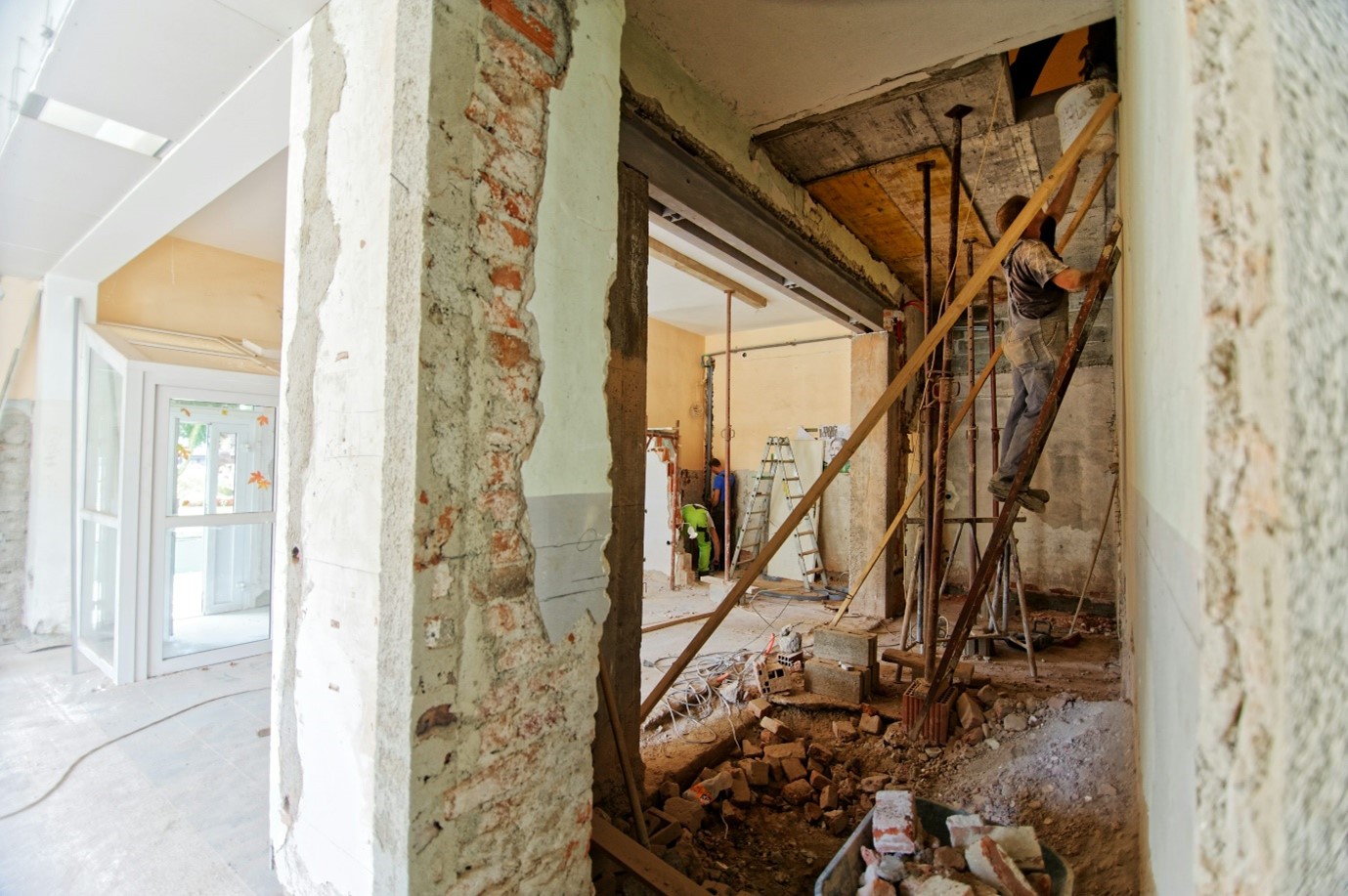
8. Fence and Gate Maintenance
Fences and gates provide security and define property boundaries.
Maintenance Steps:
- Inspect for Damage: Look for loose boards, rust, or sagging sections.
- Clean Regularly: Remove dirt and mildew from surfaces.
- Paint or Stain Wood Fences: Protect against weathering and extend lifespan.
- Lubricate Hinges and Locks: Ensure gates open and close smoothly.
- Repair Promptly: Fix any issues to maintain security and appearance.
Tip: Use weather-resistant materials for repairs to enhance durability.
9. Driveway and Walkway Care
Driveways and walkways are functional and contribute to your home’s overall look.
Maintenance Tips:
- Regular Cleaning: Sweep debris and wash surfaces to prevent staining.
- Seal Cracks: Use sealant to fill cracks and prevent water damage.
- Reseal Surfaces: Apply sealant every few years to protect against wear and tear.
- Remove Weeds: Eliminate weeds growing between pavers or cracks.
- Address Drainage Issues: Ensure proper water runoff to prevent pooling and erosion.
SEO Keywords: driveway maintenance, walkway care, sealing driveways
10. Maintain Outdoor Lighting
Outdoor lighting enhances safety and adds ambiance to your home’s exterior.
Steps:
- Inspect Fixtures: Check for damage or corrosion.
- Replace Bulbs: Use energy-efficient LED bulbs for longevity and savings.
- Clean Lenses: Remove dirt and debris to ensure optimal brightness.
- Check Wiring: Ensure all connections are secure and protected from the elements.
- Adjust Timers and Sensors: Optimize settings for changing daylight hours.
Tip: Consider solar-powered lights for an eco-friendly and cost-effective option.
11. Pest Control Measures
Pests can damage your home’s exterior and pose health risks.
Prevention Tips:
- Seal Entry Points: Close gaps and cracks where pests can enter.
- Remove Nesting Areas: Clear debris and overgrown vegetation near your home.
- Proper Waste Management: Secure rubbish bins and remove food sources.
- Use Barriers: Install mesh over vents and chimney openings.
- Professional Pest Control: Hire services for persistent or severe infestations.
SEO Keywords: pest prevention, exterior pest control, protect home from pests
12. Seasonal Maintenance Tips
Different seasons bring unique challenges for home maintenance.
Spring:
- Clean gutters and downspouts after winter.
- Inspect the roof for any damage from snow or ice.
- Prepare the garden and plant new foliage.
Summer:
- Power wash surfaces to remove mildew.
- Paint or stain decks and fences.
- Check irrigation systems for efficiency.
Autumn:
- Rake leaves and clean gutters regularly.
- Seal cracks and gaps to prepare for colder weather.
- Trim trees and shrubs before winter dormancy.
Winter:
- Protect pipes from freezing.
- Remove snow and ice from walkways and driveways.
- Check outdoor lighting for longer nights.
Tip: Create a seasonal maintenance schedule to stay organized and proactive.

13. Safety Precautions
Always prioritize safety when performing exterior maintenance tasks.
Guidelines:
- Use Proper Equipment: Wear protective gear like gloves, goggles, and sturdy footwear.
- Ladder Safety: Ensure ladders are stable and have someone assist you.
- Avoid Hazardous Conditions: Do not work in extreme weather or poor light conditions.
- Be Cautious with Chemicals: Follow instructions when using cleaning agents or pesticides.
- Hire Professionals When Needed: For tasks beyond your skill level or comfort.
SEO Keywords: home maintenance safety, DIY safety tips, protective equipment
14. Common Mistakes to Avoid
Avoiding common pitfalls can make your maintenance efforts more effective.
Mistakes:
- Neglecting Regular Maintenance: Infrequent care leads to bigger problems.
- Using Incorrect Materials: Choose appropriate products for your home’s specific needs.
- Overlooking Small Issues: Minor damage can escalate if ignored.
- Improper DIY Techniques: Lack of knowledge can cause more harm than good.
- Ignoring Manufacturer Guidelines: Follow instructions for products and equipment.
Tip: When in doubt, consult professionals to ensure tasks are done correctly.
15. Conclusion
Maintaining your home’s exterior doesn’t have to be overwhelming. By following these easy steps, you can preserve the beauty and integrity of your property. Regular upkeep not only enhances curb appeal but also prevents costly repairs in the future. Remember, consistency is key, and investing time in maintenance now saves you time and money later.
Whether you’re a seasoned homeowner or new to property ownership, these guidelines provide a solid foundation for exterior care. Embrace the process, and enjoy the satisfaction of a well-maintained home.
16. About Wrestore
Commercial and Residential Property Maintenance Specialists
At Wrestore, we are dedicated to helping homeowners maintain and enhance their properties. Based in London and serving areas within the M25, we bring over 30 years of combined experience in the property and built environment sector.
Our Services Include:
- General Maintenance: From routine upkeep to minor repairs, we keep your property in optimal condition.
- Plumbing: Expert installations and repairs by certified professionals.
- Electrics: Safe and certified electrical services for peace of mind.
- Decorating: Professional painting and decorating to transform your space.
- Refurbishment: Comprehensive property upgrades tailored to your needs.
- Handyman Services: Versatile assistance for various tasks around your property.
Why Choose Wrestore?
- Reliability: We deliver hassle-free, dependable service that you can trust.
- Expertise: Our skilled team ensures high-quality workmanship on every project.
- Accreditations: We are accredited by Alcumus SafeContractor, Alcumus SafePQQ, and Gas Safe Register, demonstrating our commitment to safety and professionalism.
- Customer Satisfaction: See our reviews on Trustpilot and discover why clients choose us for their property maintenance needs.
Contact Us Today
Phone: +44 (0)207 183 2771
Email: works@wrestore.co.uk
Address: 227 Waterloo Road, London, SE1 8XH
Visit our website to learn more about how we can assist you in maintaining and enhancing your property.
Taking care of your home’s exterior is an investment in its longevity and your enjoyment. Start today with these easy steps and experience the difference.
Note: This blog post is intended for informational purposes and should not replace professional advice. Always consult qualified professionals for specific concerns related to your property maintenance.
Electricity powers our modern lives, from lighting our homes to running essential appliances. While it provides countless conveniences, electricity can also pose significant risks if not handled properly. Electrical hazards are a leading cause of house fires, injuries, and even fatalities. As a homeowner, understanding how to safely manage your home’s electrical system is crucial for protecting your property and loved ones.
In this comprehensive guide, we’ll explore essential safety tips to help you avoid electrical hazards. Whether you’re tackling minor DIY projects or simply want to ensure your home is safe, these guidelines will equip you with the knowledge to prevent accidents and maintain a secure living environment.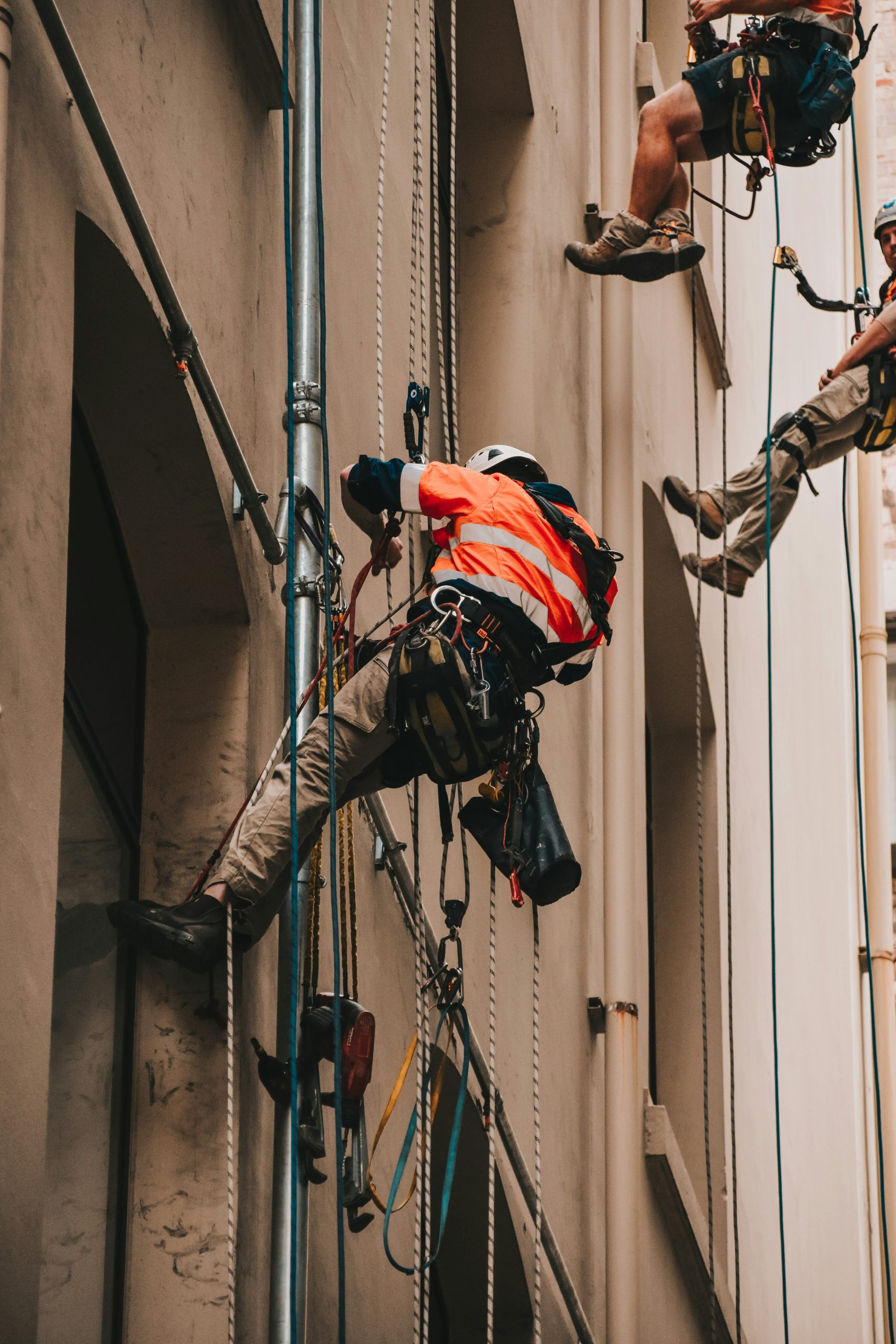
Table of Contents
- Understanding Electrical Hazards
- Common Causes of Electrical Accidents
- Conducting a Home Electrical Inspection
- Safe Use of Electrical Appliances
- Proper Extension Cord Usage
- Childproofing Electrical Outlets
- Outdoor Electrical Safety
- DIY vs Professional Help
- Electrical Fire Prevention
- What to Do in an Electrical Emergency
- Upgrading Your Electrical System
- Legal Requirements and Regulations
- Energy Saving and Safety
- Common Mistakes to Avoid
- Conclusion
- About Wrestore
1. Understanding Electrical Hazards
Electrical hazards can manifest in various forms, including shocks, burns, fires, and explosions. Recognising potential dangers is the first step in preventing accidents.
Types of Electrical Hazards:
- Electric Shock: Occurs when the body becomes part of an electrical circuit, leading to potential injury or death.
- Electrical Burns: Result from contact with energized equipment or wiring.
- Electrical Fires: Caused by faulty wiring, overloaded circuits, or malfunctioning appliances.
- Arc Flashes: Sudden releases of energy due to electrical faults, leading to explosions.
SEO Keywords: electrical hazards, types of electrical dangers, electric shock prevention
2. Common Causes of Electrical Accidents
Understanding the root causes of electrical accidents helps in implementing effective prevention strategies.
Primary Causes:
- Faulty Wiring: Aging or damaged wiring increases the risk of fires and shocks.
- Overloaded Circuits: Plugging too many devices into one outlet can cause overheating.
- Improper Use of Extension Cords: Using cords incorrectly can lead to short circuits.
- DIY Electrical Work: Unqualified repairs or installations can create hazards.
- Water Exposure: Electricity and water are a dangerous combination.
Tip: Regular inspections and mindful usage of electrical systems can significantly reduce these risks.
3. Conducting a Home Electrical Inspection
Regular inspections are essential to identify and address potential issues before they become serious problems.
Inspection Checklist:
- Check Outlets and Switches: Look for signs of damage, discoloration, or loose fittings.
- Inspect Cords and Plugs: Ensure they are in good condition without fraying or exposed wires.
- Test Circuit Breakers: Make sure they function correctly and are not frequently tripping.
- Assess Lighting Fixtures: Check for proper bulb wattage and secure installation.
- Look for Signs of Rodent Damage: Rodents can chew through wiring, causing hazards.
Tip: Consider hiring a certified electrician for a comprehensive inspection, especially in older homes.
4. Safe Use of Electrical Appliances
Appliances are integral to daily life but can pose risks if misused.
Safety Guidelines:
- Read Manuals: Follow manufacturer instructions for installation and use.
- Unplug When Not in Use: Disconnect appliances to prevent overheating and save energy.
- Avoid Overloading Outlets: Use one plug per outlet whenever possible.
- Keep Appliances Dry: Prevent contact with water to avoid shocks.
- Use Appropriate Bulbs: Match bulb wattage to fixture recommendations.
SEO Keywords: appliance safety, electrical appliance tips, prevent electrical accidents
5. Proper Extension Cord Usage
Extension cords are convenient but can be hazardous if not used correctly.
Best Practices:
- Choose the Right Cord: Select cords rated for the intended use (indoor vs outdoor, amperage).
- Inspect Before Use: Check for damage or wear.
- Avoid Daisy-Chaining: Do not connect multiple extension cords together.
- Do Not Overload: Ensure the cord can handle the electrical load.
- Proper Placement: Keep cords away from high-traffic areas to prevent tripping and damage.
Tip: For permanent needs, consider installing additional outlets rather than relying on extension cords.
6. Childproofing Electrical Outlets
Children are naturally curious, making it essential to secure electrical outlets and devices.
Safety Measures:
- Use Outlet Covers: Install tamper-resistant outlet covers or safety plugs.
- Keep Cords Out of Reach: Arrange furniture to block access to cords and outlets.
- Educate Children: Teach them about electrical dangers in an age-appropriate manner.
- Secure Appliances: Ensure heavy appliances cannot be pulled over by tugging on cords.
SEO Keywords: childproofing outlets, electrical safety for kids, tamper-resistant outlets
7. Outdoor Electrical Safety
Outdoor electrical systems require special attention due to exposure to the elements.
Guidelines:
- Use Weatherproof Outlets: Install Ground Fault Circuit Interrupter (GFCI) outlets outdoors.
- Protect Cords and Connections: Use outdoor-rated cords and cover connections to shield from moisture.
- Maintain Equipment: Regularly check outdoor lighting and appliances for damage.
- Beware of Overhead Lines: Keep ladders and tools away from power lines when working outdoors.
Tip: Always turn off power at the circuit breaker before performing outdoor electrical work.
8. DIY vs Professional Help
While DIY projects can be satisfying, electrical work often requires professional expertise to ensure safety and compliance with regulations.
When to DIY:
- Simple Tasks: Replacing light bulbs, resetting circuit breakers.
- Minor Repairs: Changing outlet covers or installing plug-and-play devices.
When to Call a Professional:
- Wiring Installations: Adding or replacing wiring and circuits.
- Electrical Panel Work: Upgrading or repairing fuse boxes and breaker panels.
- Compliance Requirements: Ensuring work meets building codes and safety standards.
SEO Keywords: DIY electrical work, professional electrician, when to hire an electrician
9. Electrical Fire Prevention
Electrical fires can cause devastating damage but are often preventable with proper precautions.
Prevention Tips:
- Install Smoke Alarms: Place alarms on every level of your home and test them regularly.
- Avoid Overheating: Do not cover appliances or cords with fabrics or rugs.
- Use Surge Protectors: Protect devices from voltage spikes.
- Replace Damaged Equipment: Do not use appliances or cords that show signs of wear.
- Regular Maintenance: Schedule periodic electrical system check-ups with a professional.
Tip: Keep a fire extinguisher accessible and ensure family members know how to use it.
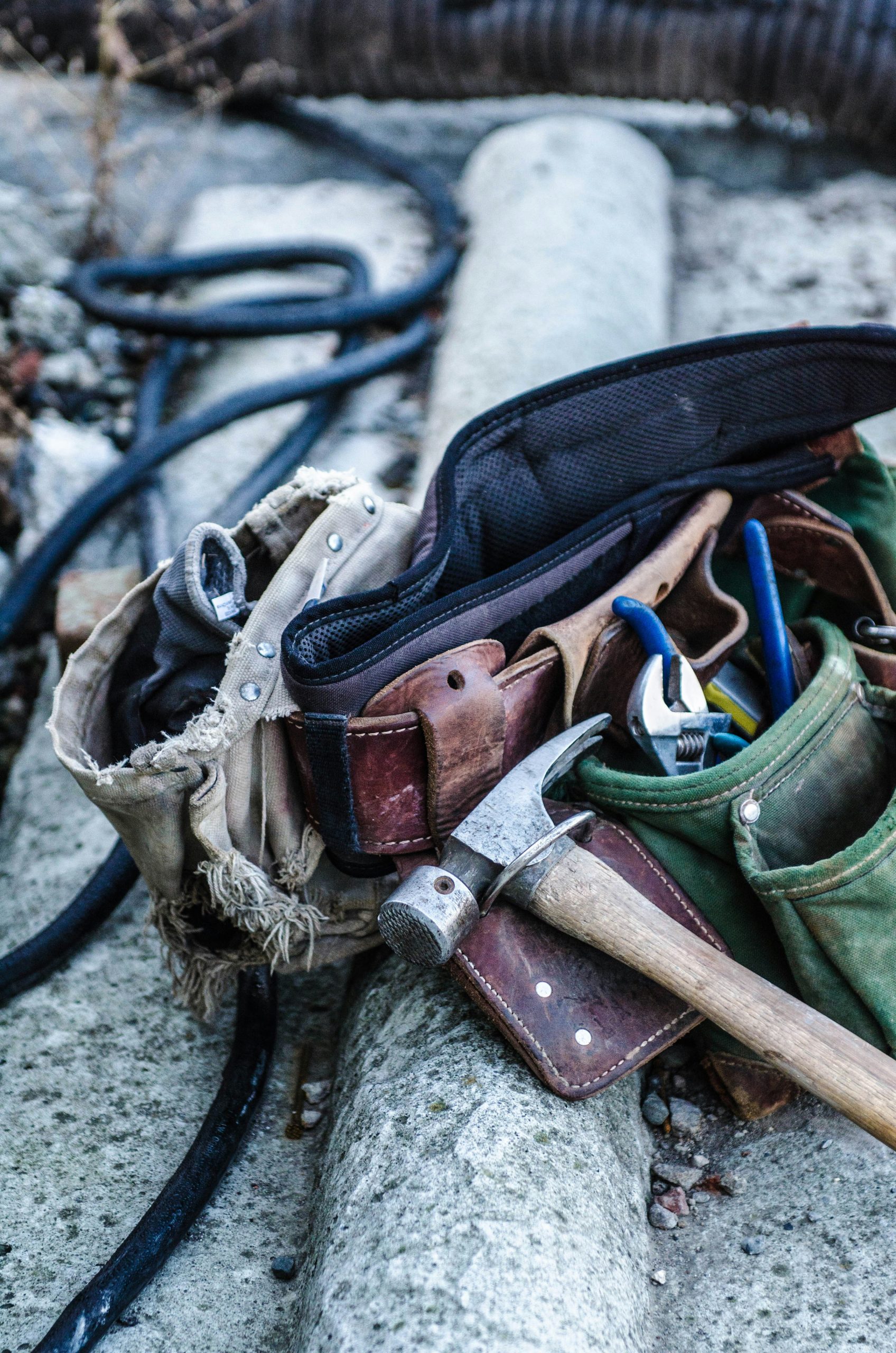
10. What to Do in an Electrical Emergency
Knowing how to respond during an electrical emergency can prevent injuries and save lives.
Immediate Actions:
- Electrical Shock: Do not touch a person in contact with electricity. Turn off the power source first.
- Electrical Fire: Disconnect power if safe to do so. Use a Class C fire extinguisher; never use water.
- Call Emergency Services: Contact professional help immediately for any serious incidents.
- Evacuate if Necessary: Prioritise personal safety over property.
SEO Keywords: electrical emergency response, handling electrical accidents, electrical fire action plan
11. Upgrading Your Electrical System
Modern electrical demands may exceed the capacity of older systems, necessitating upgrades for safety and efficiency.
Signs You Need an Upgrade:
- Frequent Circuit Breaker Trips: Indicates overloaded circuits.
- Flickering Lights: Could signify wiring issues.
- Limited Outlets: Over-reliance on extension cords.
- Use of Old Fuse Boxes: Modern circuit breakers are safer and more efficient.
Benefits:
- Enhanced Safety: Reduces the risk of fires and shocks.
- Increased Capacity: Supports modern appliances and devices.
- Energy Efficiency: New systems can lower energy consumption.
- Compliance: Meets current electrical codes and standards.
Tip: Consult a licensed electrician to assess your system and recommend necessary upgrades.
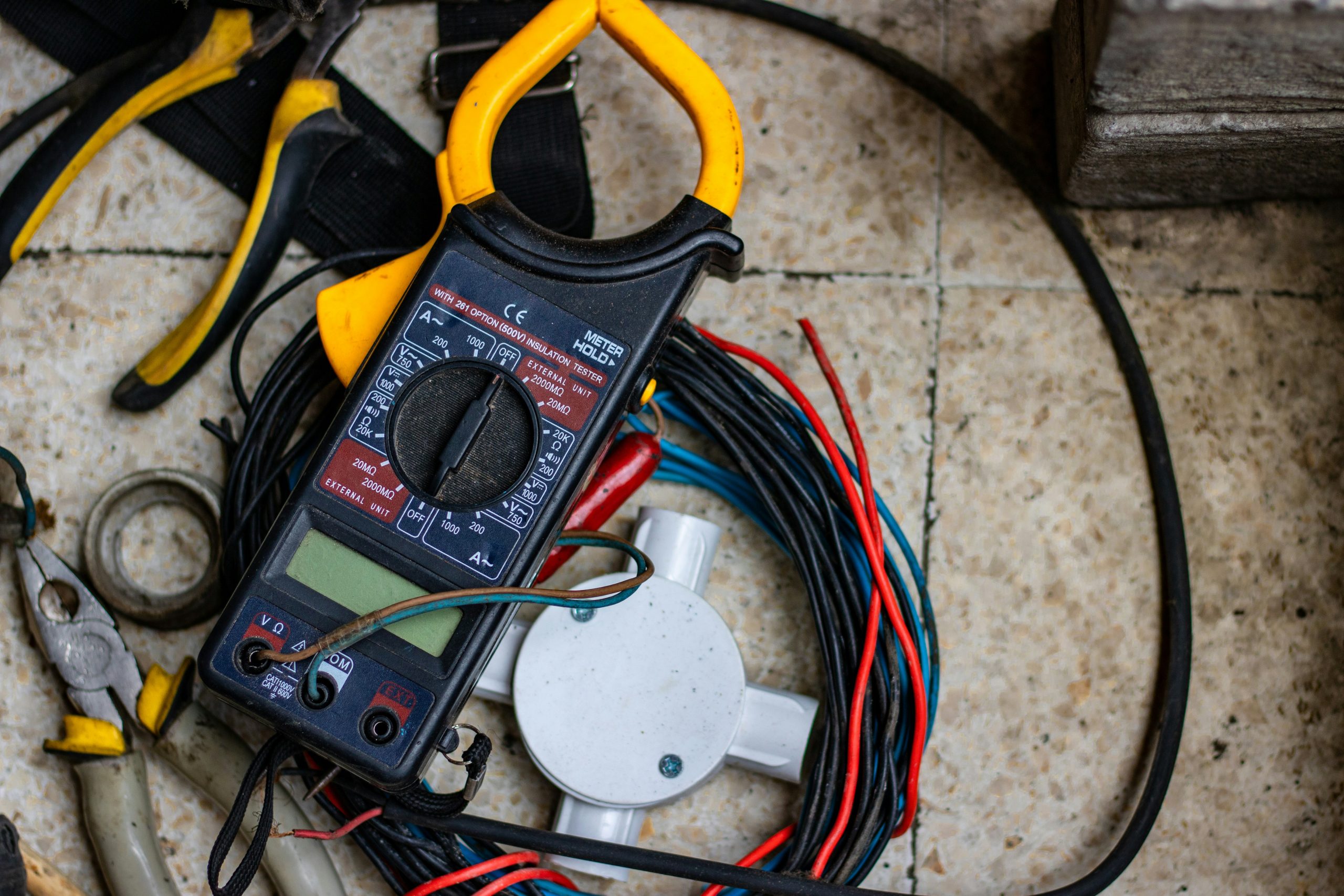
12. Legal Requirements and Regulations
Electrical work in the UK is governed by strict regulations to ensure safety.
Key Regulations:
- Part P of the Building Regulations: Covers electrical safety in dwellings.
- BS 7671 (IET Wiring Regulations): Sets the standards for electrical installations.
- Electrical Installation Condition Report (EICR): Required for rental properties to ensure electrical safety.
Homeowner Responsibilities:
- Use Qualified Professionals: Only certified electricians should perform certain types of work.
- Obtain Necessary Certificates: Ensure you receive the proper documentation after work is completed.
- Regular Inspections: Stay compliant by scheduling periodic safety checks.
SEO Keywords: electrical regulations UK, Part P compliance, electrical safety certificates
13. Energy Saving and Safety
Improving energy efficiency not only reduces bills but also enhances safety by reducing strain on your electrical system.
Tips:
- Use LED Lighting: Consumes less power and produces less heat.
- Install Smart Devices: Automate and monitor energy usage.
- Unplug Idle Devices: Prevents phantom loads and reduces risks.
- Maintain Appliances: Well-maintained devices operate more efficiently.
Tip: Consider an energy audit to identify opportunities for savings and safety improvements.
14. Common Mistakes to Avoid
Avoiding common errors can significantly enhance electrical safety in your home.
Mistakes:
- Ignoring Warning Signs: Unusual smells, sounds, or performance should be investigated promptly.
- Overlooking Grounding: Not using grounded outlets increases shock risk.
- Using Incorrect Wattage: Mismatched bulbs can cause overheating.
- Neglecting Regular Maintenance: Failing to inspect and maintain systems leads to deterioration.
- Attempting Complex DIY Repairs: Can result in serious hazards and code violations.
SEO Keywords: electrical safety mistakes, avoid electrical hazards, homeowner electrical errors
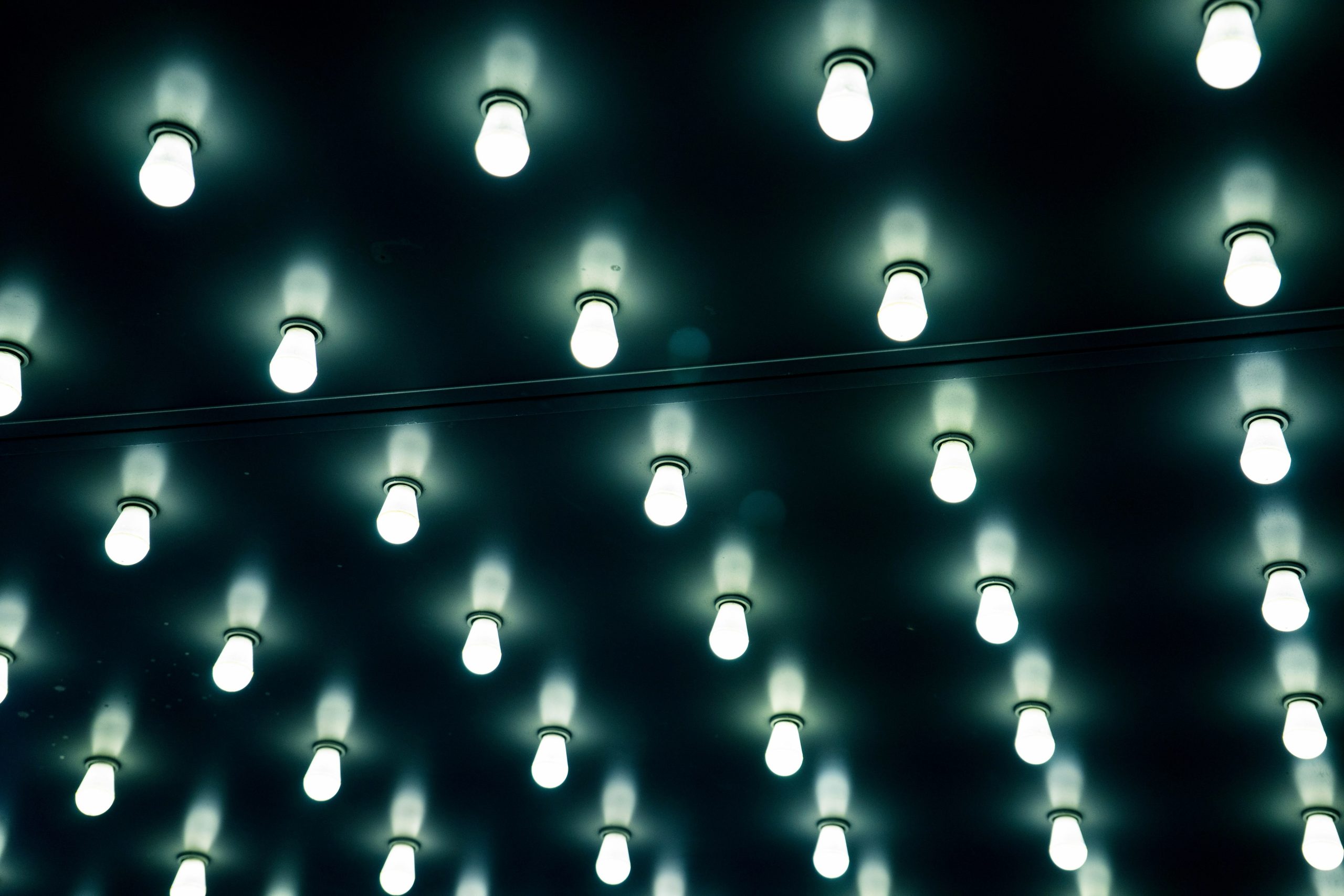
15. Conclusion
Electrical safety is a critical aspect of homeownership that should not be overlooked. By following these safety tips and best practices, you can significantly reduce the risk of electrical hazards in your home. Regular inspections, proper use of appliances and cords, and knowing when to call a professional are key components of maintaining a safe environment.
Remember, electricity is powerful and requires respect and understanding. Prioritise safety over convenience, stay informed about the condition of your electrical systems, and don’t hesitate to seek professional assistance when needed. Protecting your home and family from electrical hazards is an ongoing responsibility that pays off with peace of mind.
16. About Wrestore
Commercial and Residential Property Maintenance Specialists
At Wrestore, we are committed to helping homeowners maintain safe and efficient properties. As a locally run and owned property maintenance company based in London, we have over 30 years of combined experience in the property and built environment sector. Serving areas within the M25, we provide affordable managed maintenance work for commercial and residential properties.
Our Services Include:
- Electrical Services: Safe and certified electrical repairs, installations, and inspections.
- General Maintenance: Keeping your property in optimal condition.
- Plumbing: From fixing leaks to installing new fixtures.
- Decorating: Transforming your space with professional painting and decorating.
- Refurbishment: Comprehensive property upgrades.
- Handyman Services: Versatile assistance for all those little jobs around the home.
Why Choose Wrestore?
- Reliability: We deliver a hassle-free, dependable service that you can count on.
- Expertise: Our experienced team ensures high-quality workmanship.
- Accredited: We are accredited by Alcumus SafeContractor, Alcumus SafePQQ, and Gas Safe Register, ensuring our services meet high safety and quality standards.
- Customer Satisfaction: See our reviews on Trustpilot and discover why our clients trust us with their properties.
Contact Us Today
Phone: +44 (0)207 183 2771
Email: works@wrestore.co.uk
Address: 227 Waterloo Road, London, SE1 8XH
Visit our website to learn more about how we can assist you in ensuring the safety and maintenance of your property.
Prioritising electrical safety in your home is an investment in your family’s well-being. Take proactive steps today to prevent hazards and enjoy peace of mind.
Note: This blog post is intended for informational purposes and should not replace professional advice. Always consult qualified electricians for specific concerns related to your home’s electrical system.
Ultimate Guide to Electrical Safety Tips for Homeowners
Ensuring electrical safety in your home is paramount to protecting your family and property. At Wrestore.co.uk, we are dedicated to providing you with expert advice and best practices to keep your home’s electrical systems safe and efficient. This comprehensive guide covers essential electrical safety tips, from routine maintenance to energy-saving practices.
1. Conduct Regular Electrical Inspections
Annual electrical inspections by a licensed electrician are crucial for identifying potential hazards. Regular check-ups can uncover hidden issues such as faulty wiring, outdated components, and overloaded circuits, helping you address problems before they become serious threats.
2. Upgrade Outdated Wiring
If your home is more than 30 years old, it may have outdated wiring that poses a fire risk. Upgrading to modern wiring materials and techniques not only enhances safety but also improves electrical efficiency and supports the demands of modern appliances and technology.
3. Install Ground Fault Circuit Interrupters (GFCIs)
GFCIs are essential in preventing electrical shock, especially in areas with water exposure like kitchens, bathrooms, and outdoor spaces. These devices shut off power quickly when a ground fault is detected, providing an extra layer of protection against electrical hazards.
4. Use Surge Protectors
Surge protectors safeguard your electronic devices from voltage spikes caused by lightning, power outages, or other disruptions. High-quality surge protectors can prevent damage to valuable equipment, ensuring their longevity and optimal performance.
5. Avoid Overloading Circuits
Distribute electrical loads evenly across circuits to prevent overloading, which is a common cause of electrical issues. Avoid plugging too many high-wattage devices into a single outlet and consider upgrading your electrical panel if you frequently trip circuit breakers.
6. Label Your Circuit Breakers
Properly labeled circuit breakers can save time and reduce confusion during electrical emergencies or maintenance. Clearly mark each breaker to indicate the corresponding area or appliance it controls, making it easier to isolate circuits safely.
7. Test Smoke and Carbon Monoxide Detectors
Regularly test smoke and carbon monoxide detectors to ensure they are functioning correctly. Replace batteries annually and consider installing interconnected detectors, which trigger all alarms simultaneously when one is activated, enhancing overall safety.
8. Hire Qualified Electricians
Always hire qualified, licensed electricians for any electrical work. DIY electrical repairs can be dangerous and may not comply with local codes. Professional electricians have the expertise to perform repairs safely and efficiently, ensuring compliance with safety standards.
9. Maintain Proper Lighting
Ensure proper lighting in your home by regularly checking and replacing burnt-out bulbs, cleaning fixtures, and upgrading to energy-efficient LED bulbs. Adequate lighting reduces the risk of accidents and lowers energy costs.
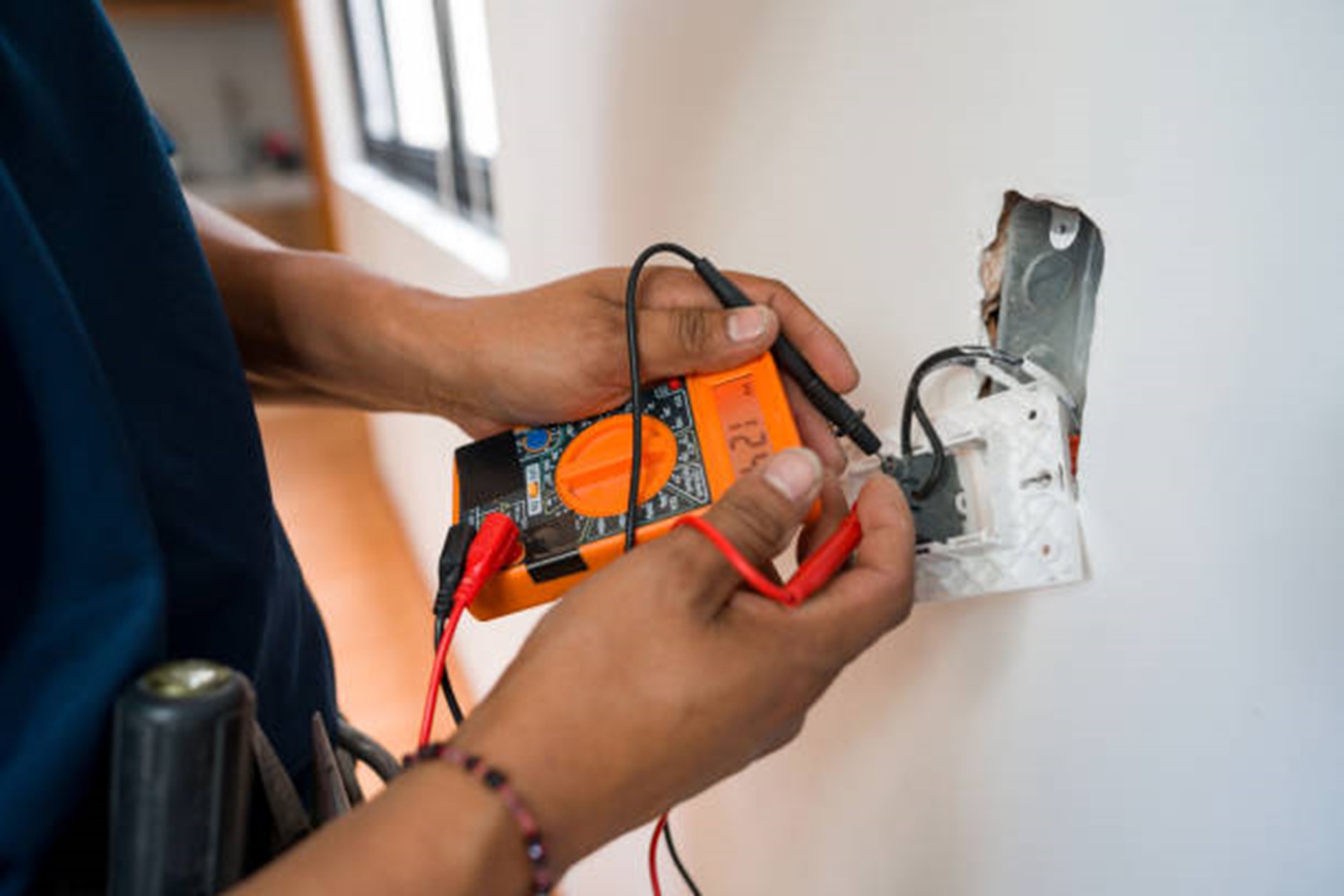
10. Implement Energy-Efficient Practices
Adopting energy-efficient practices can reduce utility bills and environmental impact. Turn off lights when not in use, use programmable thermostats, and unplug devices when they are not needed. Consult with an electrician to identify further energy-saving opportunities.
11. Check Extension Cords and Power Strips
Regularly inspect extension cords and power strips for signs of wear and damage. Avoid using them as permanent solutions and never daisy-chain multiple cords or strips together, as this can overload circuits and create fire hazards.
12. Secure Outlets and Switches
Loose outlets and switches can be a sign of wiring issues and pose a shock hazard. Ensure all outlets and switches are securely fastened to the wall, and contact an electrician if you notice any that are loose or malfunctioning.
13. Install Arc Fault Circuit Interrupters (AFCIs)
AFCIs detect and prevent arc faults, which are a leading cause of electrical fires. Installing AFCIs in your home’s electrical panel adds an extra layer of protection, particularly in bedrooms and common living areas where electrical fires often start.
14. Childproof Your Electrical System
If you have young children, take steps to childproof your electrical system. Install tamper-resistant outlets, use outlet covers, and keep cords out of reach to prevent accidental shocks and injuries.
15. Schedule Routine Maintenance for Appliances
Regular maintenance of household appliances ensures they operate safely and efficiently. Follow the manufacturer’s recommendations for cleaning and servicing, and replace appliances that show signs of significant wear or malfunction.
16. Install Outdoor Lighting with Motion Sensors
Outdoor lighting with motion sensors enhances security and conserves energy by only turning on when movement is detected. Ensure outdoor fixtures are weatherproof and regularly inspect them for damage or malfunction.
17. Understand Your Electrical System
Familiarize yourself with your home’s electrical system, including the location of the main panel, circuit breakers, and shut-off switches. Knowing how to quickly disconnect power in an emergency can prevent accidents and injuries.
18. Avoid DIY Electrical Projects
Electrical work can be complex and dangerous. Avoid attempting DIY electrical projects unless you have the proper training and certification. Always hire a licensed electrician to handle electrical installations, repairs, and upgrades.
19. Invest in Smart Home Technology
Smart home technology can enhance electrical safety and efficiency. Devices such as smart thermostats, lighting systems, and security cameras provide greater control and monitoring capabilities, allowing you to optimize energy use and detect potential issues early.
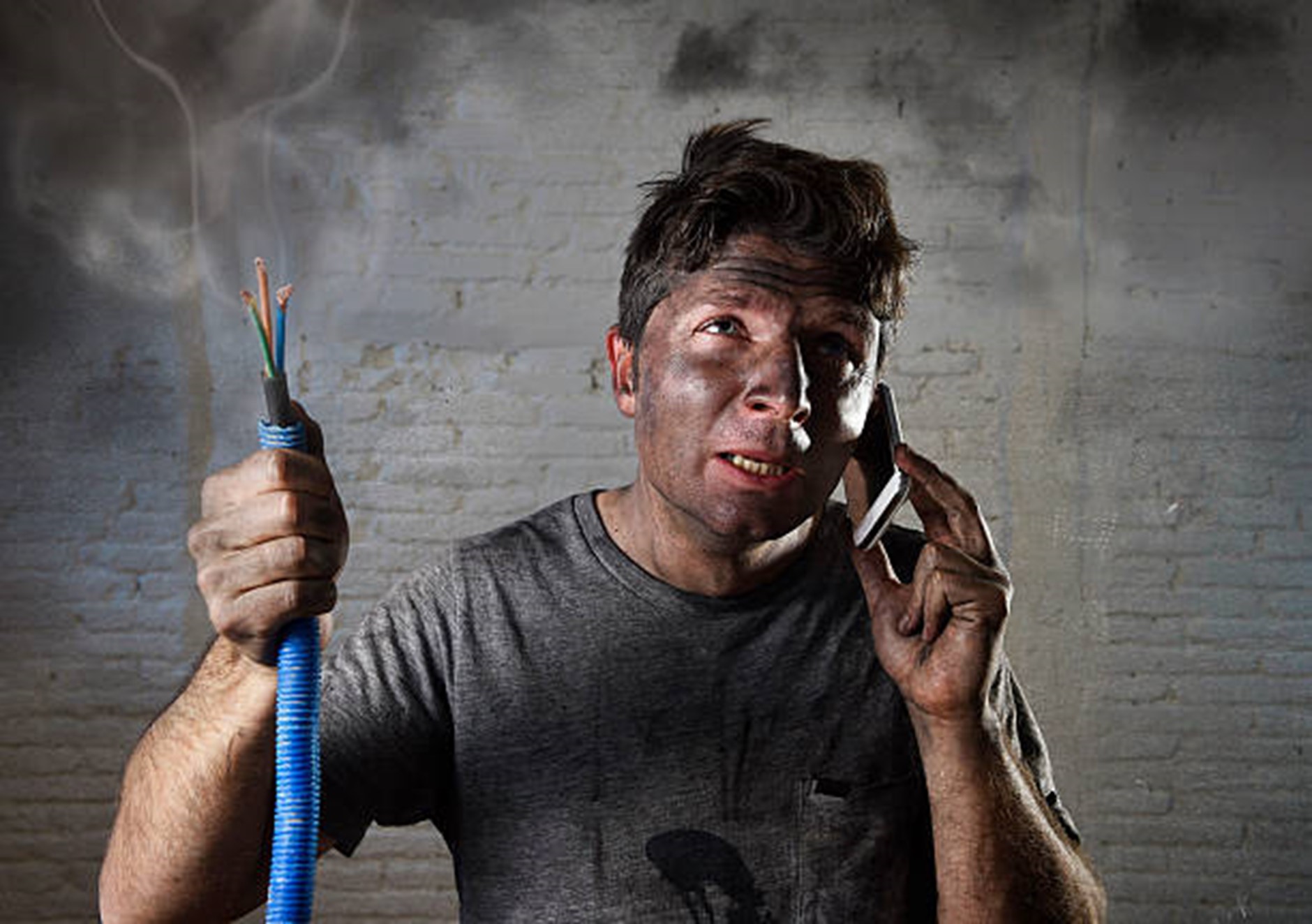
20. Stay Informed About Electrical Safety
Stay informed about the latest electrical safety standards and practices by regularly reading safety guides and consulting with professional electricians. Being proactive and knowledgeable about electrical safety can prevent accidents and ensure a secure home environment.
FAQs
Conclusion
Ensuring electrical safety in your home is essential for protecting your family and property. By following these tips and best practices, you can prevent hazards, reduce energy costs, and maintain a safe and efficient electrical system. For professional electrical services and expert advice, trust Wrestore.co.uk to keep your home safe and in optimal condition.
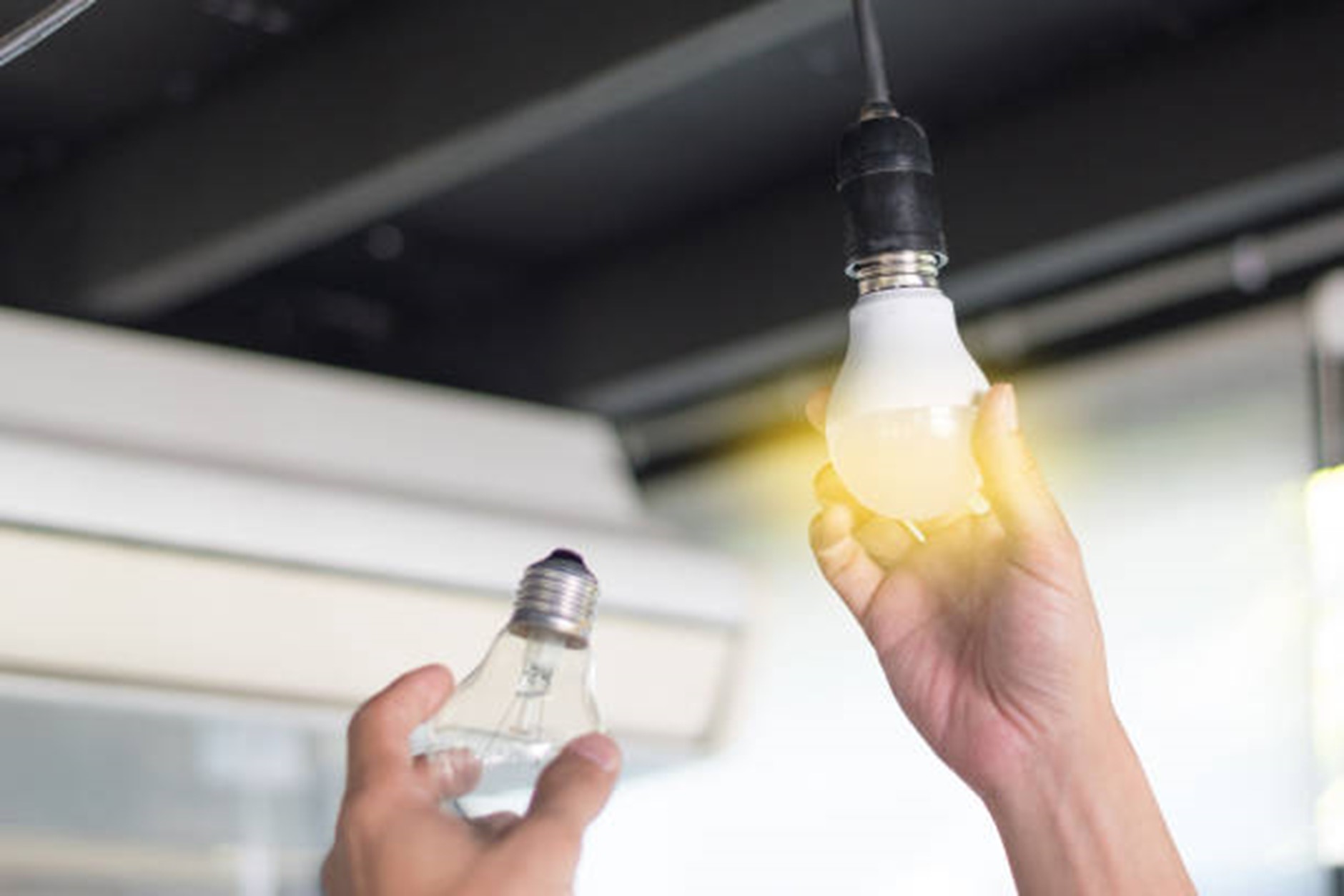
Electrician Tips to Ensure Safety and Efficiency in Your Property
Maintaining electrical safety and efficiency is crucial for any property owner. At Wrestore.co.uk, we understand the importance of keeping your electrical systems in top condition to prevent hazards and ensure optimal performance. This article provides essential tips and best practices to help you manage and maintain your property’s electrical systems safely and effectively.
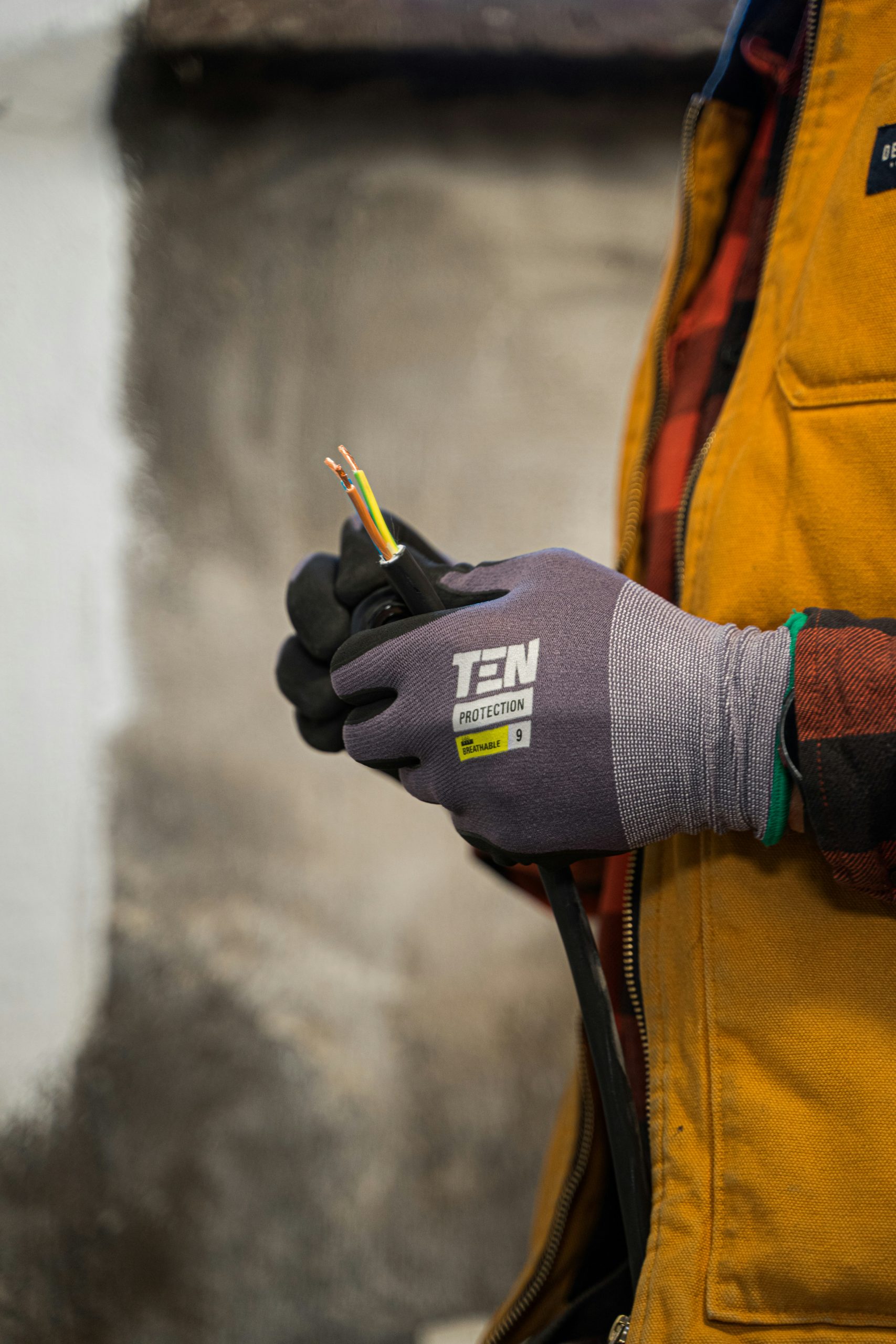
1. Regular Electrical Inspections
Conducting regular electrical inspections is vital to identify potential issues before they become serious problems. An annual check-up by a licensed electrician can uncover hidden hazards such as faulty wiring, outdated components, or overloaded circuits, ensuring your property remains safe and compliant with current regulations.
2. Upgrade Old Wiring
Old or outdated wiring can be a significant fire hazard. If your property is more than 30 years old, it’s advisable to have the wiring inspected and potentially upgraded. Modern wiring materials and techniques are safer and more efficient, reducing the risk of electrical fires and improving overall electrical performance.
3. Install Ground Fault Circuit Interrupters (GFCIs)
GFCIs are essential safety devices that protect against electrical shock by quickly shutting off power when a ground fault is detected. They are particularly important in areas where water is present, such as kitchens, bathrooms, and outdoor spaces. Ensure GFCIs are installed and functioning correctly in these high-risk areas.
4. Use Surge Protectors
Surge protectors safeguard your appliances and electronic devices from voltage spikes caused by lightning, power outages, or other disruptions. Invest in high-quality surge protectors to protect valuable equipment and reduce the risk of damage during electrical surges.
5. Avoid Overloading Circuits
Overloading circuits is a common cause of electrical problems. To prevent this, distribute electrical loads evenly across circuits and avoid plugging too many high-wattage devices into a single outlet. If you frequently trip circuit breakers, it may be time to upgrade your electrical panel to accommodate increased demand.
6. Label Circuit Breakers
Properly labelling circuit breakers can save time and reduce confusion during electrical emergencies or routine maintenance. Ensure each breaker is clearly marked to indicate the corresponding area or appliance it controls. This makes it easier to isolate circuits and perform necessary repairs safely.
7. Test Smoke and Carbon Monoxide Detectors
Smoke and carbon monoxide detectors are critical safety devices that should be tested regularly to ensure they are functioning correctly. Replace batteries annually and consider installing interconnected detectors for added safety, so when one detector is triggered, all alarms sound simultaneously.
8. Hire Qualified Electricians
Always hire qualified and licensed electricians for any electrical work. Attempting DIY electrical repairs can be dangerous and may result in serious injury or property damage. Professional electricians have the expertise and tools to perform repairs safely and efficiently, ensuring compliance with local codes and standards.
9. Maintain Proper Lighting
Proper lighting is essential for both safety and efficiency. Regularly check and replace burnt-out bulbs, clean light fixtures to ensure optimal brightness, and consider upgrading to energy-efficient LED bulbs. Good lighting reduces the risk of accidents and can significantly lower energy costs.
10. Implement Energy-Efficient Practices
Adopting energy-efficient practices not only reduces your utility bills but also helps protect the environment. Simple measures such as turning off lights when not in use, using programmable thermostats, and unplugging devices when they’re not in use can make a significant difference. Consider consulting with an electrician to identify further opportunities for energy savings.
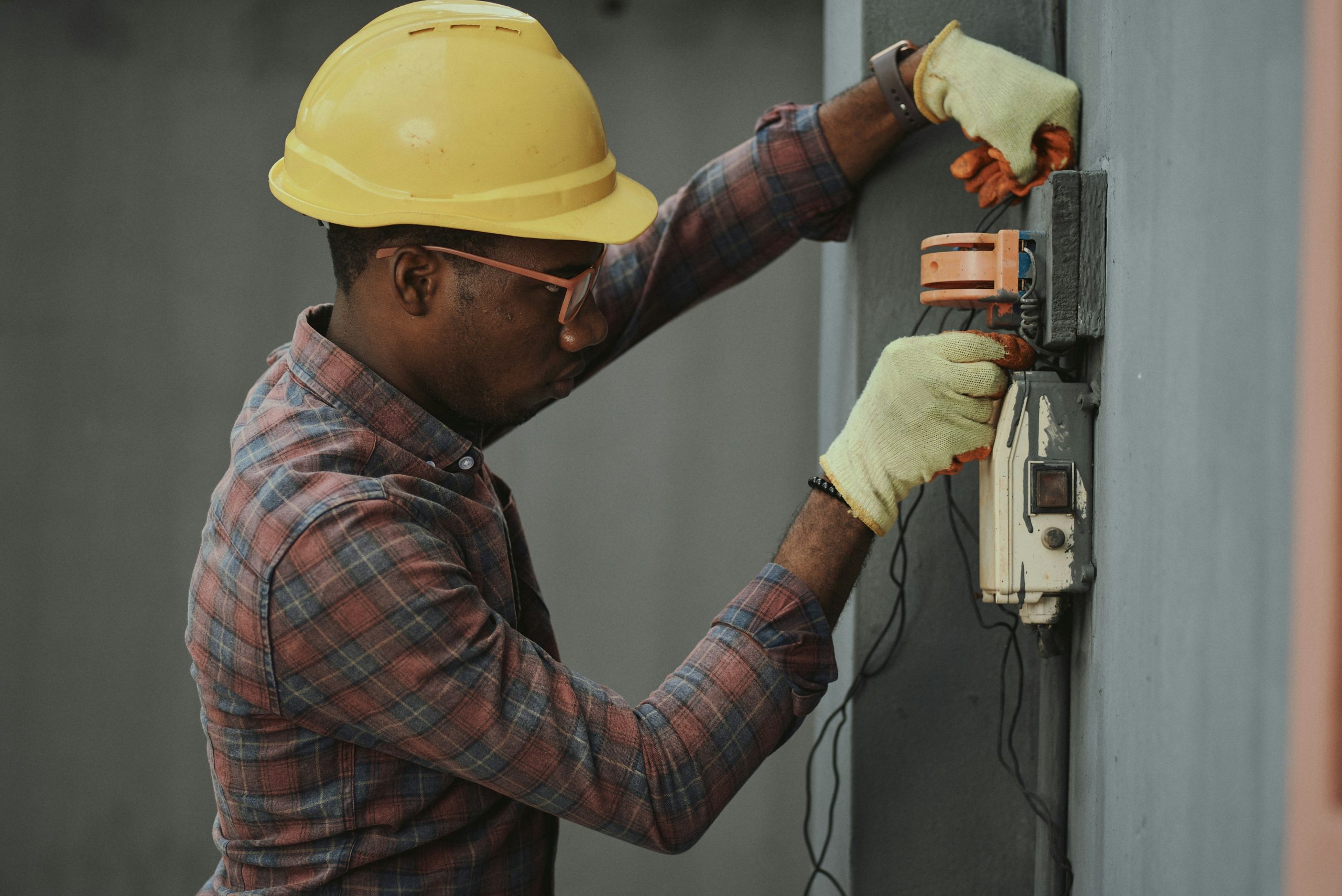
FAQs
Conclusion
Maintaining your property’s electrical system is essential for ensuring safety and efficiency. By following these tips and best practices, you can prevent potential hazards, reduce energy costs, and extend the lifespan of your electrical components. For professional electrical services and expert advice, trust Wrestore.co.uk to keep your property in top condition.